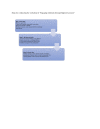Experiences of Undergraduate Medical, Nursing Students and Faculty regarding Flipped Classroom: A Mixed Method Study at Private Medical University in Pakistan
- PMID: 37076143
- PMCID: PMC10124245
- DOI: 10.1136/bmjopen-2022-070276
Experiences of Undergraduate Medical, Nursing Students and Faculty regarding Flipped Classroom: A Mixed Method Study at Private Medical University in Pakistan
Abstract
The 'flipped classroom (FCR)' is a teaching pedagogy where students are actively involved in the learning process. It reduces passivity, enables students to become active learners through reasoning and concept application and facilitates student interaction with their peers and instructors. This instructional approach enhances retention and decreases distraction by engaging students.
Objectives: The purpose of this study was to train the faculty of the medical college and school of nursing in developing FCRs as an innovative teaching and learning strategy, to facilitate them in conducting flipped sessions for their students and to explore the experiences of medical, nursing students along with faculty members regarding the FCR they had attended and conducted.
Setting: Private medical college.
Participants: A total of 442 students from medical college and school of nursing and midwifery participated in the evaluation survey with a female to male ratio of 339:103. Students who attended the flipped class sessions were included in the study sample. Students who did not complete the forms were excluded from the study. Nine faculty members who attended the workshop, agreed to facilitate the FCR session were invited to participate in the focus group discussion.
Results: Both medical and nursing students found FCR format stimulating. A significantly higher proportion of medical students (73%) found the FCR more engaging and interesting than a traditional lecture as compared with nursing students (59%) (p=0.009). Similarly, 73% of medical students believed the learning objectives of both the non-face-to-face and face-to-face sessions were shared with them as compared with the 62% of nursing students who believed the same (p=0.002). A significantly higher proportion of medical (76%) versus nursing (61%) students found the FCR format more useful for application of their theoretical knowledge into clinical practice (p=0.030).
Conclusion: Students found the FCR more engaging and interesting in terms of applying theoretical knowledge into practice. Similarly, faculty found this strategy as effective but challenging in terms of involving and engaging students in the learning process. It is recommended to conduct more FCR sessions for an interactive and student-centred learning, but proper planning of the session and using variety of technological tools to engage learners is a key to success.
Keywords: EDUCATION & TRAINING (see Medical Education & Training).
© Author(s) (or their employer(s)) 2023. Re-use permitted under CC BY-NC. No commercial re-use. See rights and permissions. Published by BMJ.
Conflict of interest statement
Competing interests: None declared.
Figures
Similar articles
-
Comparing the effects of traditional lecture and flipped classroom on nursing students' critical thinking disposition: A quasi-experimental study.Nurse Educ Today. 2018 Dec;71:151-156. doi: 10.1016/j.nedt.2018.09.027. Epub 2018 Sep 28. Nurse Educ Today. 2018. PMID: 30286373
-
Flipping around the classroom: Accelerated Bachelor of Science in Nursing students' satisfaction and achievement.Nurse Educ Today. 2017 Sep;56:41-46. doi: 10.1016/j.nedt.2017.06.003. Epub 2017 Jun 19. Nurse Educ Today. 2017. PMID: 28654815
-
Student and educator experiences of maternal-child simulation-based learning: a systematic review of qualitative evidence protocol.JBI Database System Rev Implement Rep. 2015 Jan;13(1):14-26. doi: 10.11124/jbisrir-2015-1694. JBI Database System Rev Implement Rep. 2015. PMID: 26447004
-
Perception of online and face to face microbiology laboratory sessions among medical students and faculty at Arabian Gulf University: a mixed method study.BMC Med Educ. 2022 May 30;22(1):411. doi: 10.1186/s12909-022-03346-2. BMC Med Educ. 2022. PMID: 35637505 Free PMC article. Review.
-
Student engagement in flipped classroom in nursing education: An integrative review.Nurse Educ Pract. 2023 Mar;68:103585. doi: 10.1016/j.nepr.2023.103585. Epub 2023 Feb 23. Nurse Educ Pract. 2023. PMID: 36868159 Review.
Cited by
-
A National Evaluation of Undergraduate Nursing and Midwifery Curricula.J Adv Nurs. 2025 Apr;81(4):2072-2086. doi: 10.1111/jan.16430. Epub 2024 Sep 5. J Adv Nurs. 2025. PMID: 39235133 Free PMC article.
-
Effectiveness of a multi-model teaching strategy to train emergency medicine residents to use point-of-care ultrasound (POCUS) for assessment of shock.BMC Med Educ. 2025 Apr 23;25(1):594. doi: 10.1186/s12909-025-07093-y. BMC Med Educ. 2025. PMID: 40269863 Free PMC article. Clinical Trial.
References
-
- Ramsden P. Learning to teach in higher education. Routledge, 2003. 10.4324/9780203507711 - DOI
-
- Adam S, Adam S. Blended and online learning: student perceptions and performance. Interactive Technology and Smart Education 2009;6:140–55. 10.1108/17415650911005366 - DOI
-
- Bill T. The flipped classroom: online instruction at home frees class time for learning. Educ Next 2012;12:82–3.
Publication types
MeSH terms
LinkOut - more resources
Full Text Sources



